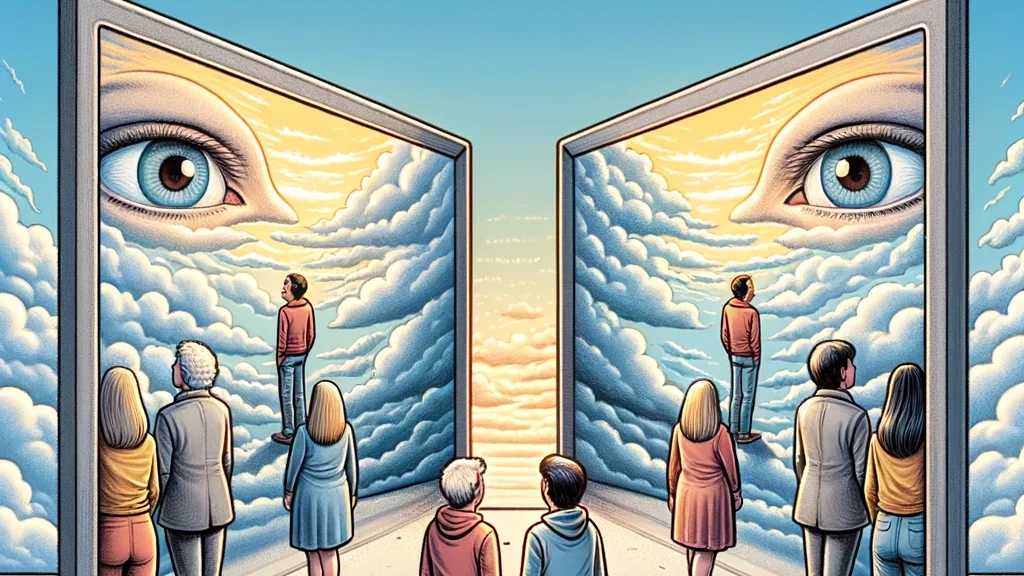Navigating Perception and Reality - Viewing the World Through Our Unique Lens

Experiencing the World Through Our Image
We often say, “Perception is reality.” Yet, each of us perceives the world slightly differently. In some cases, very differently.
The fact that we all experience the world so differently begs the question: could we be mistaken about certain things? After all, if we believe we’re always right, then by that logic, everyone else is wrong. Quite a paradox, isn't it?
If you've read this far, it's clear you’re open-minded, curious, and recognize that there’s always more to learn. So, let’s delve deeper.
Insights from Working with Schizophrenia Patients
Through my work with schizophrenia patients, I've garnered invaluable insights into human cognition. These experiences underline one crucial understanding: our perceptions, no matter how clear, can be deeply flawed.
"Who we are is how we're broken." – Will Stor
Navigating Perception and Reality: Understanding Our Cognitive Biases
Acknowledging that our understanding of the world is constructed based on our personal experiences and biases can lead to a profound realization. It sheds light on why sometimes we can't seem to find common ground with others, even on matters that seem so objectively clear to us.
The Limitations of Our Senses
The truth is, our grasp on reality is limited. We're bound by our senses, which capture just a fraction of the vast universe around us. Even bees see the magnetic fields of our world that we are unable to perceive because we don’t have those sensory organs in our eyes.
Furthermore, our brains filter this low-resolution information, cherry-picking what aligns with our beliefs and discarding the rest. Consider people with Autism, who often grapple with discerning relevant information, leading to heightened sensitivity and sometimes stress. Our neurotypical brain's filtering mechanism serves a protective purpose, shielding us from sensory overload.
Enhancing Self-Awareness in Practice
In my practice, I frequently help clients reflect on their actions and decisions. By pointing out instances when they approached situations differently, I guide them towards a deeper self-awareness, ensuring they don't tread the same path again.
Broadening Horizons: Steps Towards the Absolute Truth
So, how can we broaden our horizons and inch closer to the absolute truth?
- Engage in Conversations: Initiate open-minded discussions, especially with those whose perspectives differ from yours. This exchange can enlighten both parties about the nuances of their individual viewpoints.
- Shift Your Goals: Your perceptions are often aligned with your objectives. By altering your goals, you unconsciously adjust your lens of perception. For instance, after buying white shoes, suddenly, you start spotting them everywhere, right?
This approach can help with conflict resolution. In fact, I've found that understanding this helps when it comes to disagreements in relationships and in the workplace.
Challenge Your Reality
Every day, our perceptions shape and sometimes distort our world. Through meaningful conversations, we gain alternative viewpoints—serving as additional lenses to perceive the world. This enriched perspective often reveals solutions to challenges that previously seemed insurmountable.
Embracing the Journey of Self-Discovery
In conclusion, navigating perception and reality requires us to continuously challenge our viewpoints, engage in open-minded discussions, and embrace the journey of self-discovery.
Narrative Practice encourages exploring and challenging our deep-seated beliefs. Trust me, once you start looking at things from varied angles, you’ll likely discover solutions that were right under your nose.
Contact me for help on this topic.
Share this story


